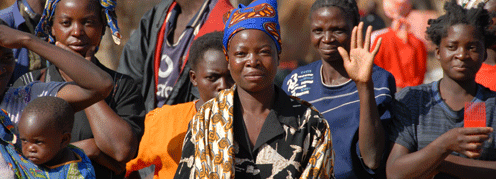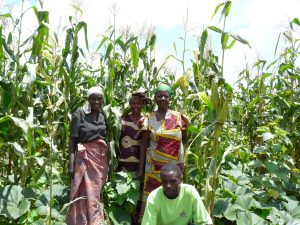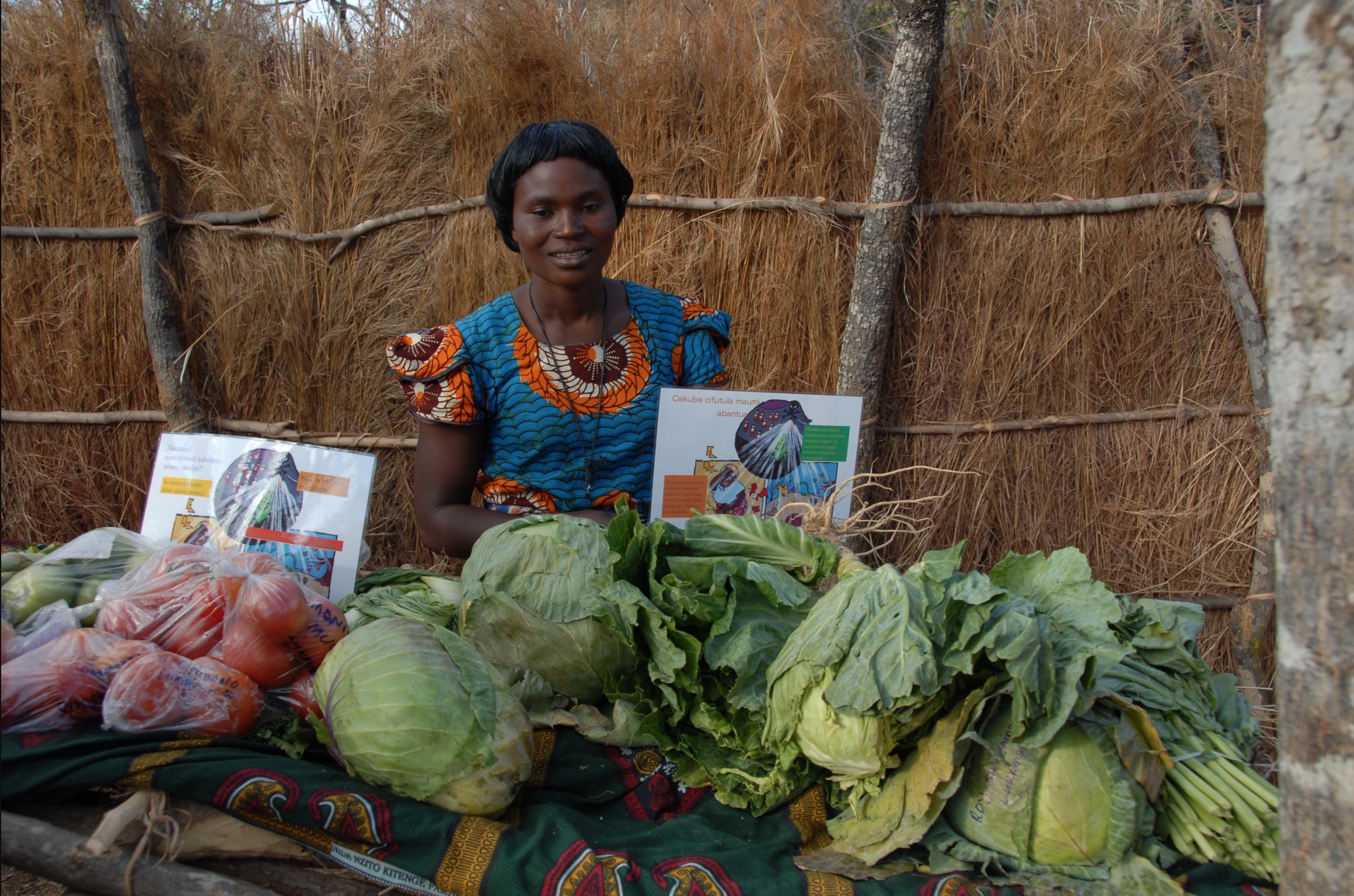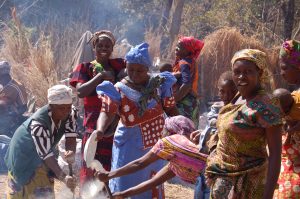Empowering Women Farmers in Rural Zambia through Natural Agriculture
Overview
The Natural Agriculture Development Program Zambia (NADPZ) was founded in 2003 in an effort to improve women’s household status and income through their involvement in agriculture in rural Zambia. In 2004 Shumei International partnered with the Natural Agriculture Development Program Zambia to improve the livelihood of small-scale farmers in Zambia by promoting affordable and environmentally friendly ways of farming with Natural Agriculture. The overall goal was not only for the farmers to improve their crop yields to feed their families and generate income, but also to support the long-term health of the land and natural resources for future generations. The results of the program have changed the landscape of farming in rural Zambia, with growth of the program increasing from 20 farm families in 2004 to more than 5,000 farmers today.
Strategies
- Examine cultivation methods and traditional cultural knowledge of the land while integrating environmentally sustainable practices
- Observe and interview elders to gain knowledge of the indigenous crops and the region’s climate and natural environment
- Organize workshops on traditional Zambian farming practices aligned with Natural Agriculture
- Set up seed saving and distribution system for the co-operative
Implementation methodologies
- Established demonstration farmland with twenty farm families to grow maize, peanuts, rape (a green vegetable), chives, onions, cabbages and tomatoes.
- Provided seeds from native crops to farmers and compared resilience to disease and performance under the changing weather conditions.
- Restricted the use of fertilizers, manure, pesticides, or herbicides.
- Supported environmentally sustainable solutions to common problems faced by farmers in rural Zambia, such as soil depletion.
- Decreased water evaporation in the soil by using local dried plant materials to cover crops to keep the soil temperate and moist, and provide protection from ‘run-off’ in deforested areas. This approach helped to naturally restore the soil’s intrinsic fertility and was seen as a successful alternative to fertilizers.
- Conducted ‘train the trainer’ workshops on Natural Agriculture as well as sustainable development to educate the women farmers about the interconnectedness of the eco-system. For example, that deforestation and the subsequent increase in ‘run off’ was a major contributor to water evaporation in the soil, which ultimately resulted in topsoil depletion.
- Assisted the co-operative with funds to build a well and purchase bicycles and a truck to transport their harvested crops.
Innovative Approach
Natural Agriculture encourages minimum intervention in the growing process and involves:
- The use of indigenous seeds;
- The practice of saving seeds;
- The cultivation of soil in its natural state without additional elements, such as fertilizers or manure; and
- A comprehensive understanding of the role of insects, neighboring plants and weeds and how to maintain their balance without the use of any pesticides or herbicides.
It has been a collaborative effort because ultimately the farming techniques are based on traditional Zambian farming culture and their knowledge of the land combined with environmental sustainable practices encouraged by Shumei’s Natural Agriculture approach. Natural Agriculture teaches respect for nature, and the project places emphasis on honoring the traditional culture of Zambia and has helped to revitalize traditional cultural values that enabled the communities to take ownership of the project which contributed to the overall success of the co-operative’s activities. Because this farming method requires minimum intervention, the cost associated with the project has been kept to a minimum. The project model is sustainable and has been replicated in seven of the NADPZ co-operative communities.
Impact and Results
- Participation in the Natural Agriculture program has grown from 20 farm families to over 5,000 farmers.
- Productivity increased from 2.5 tons of maize per 10 hectares to up to 7.5 tons per 10 hectares.
- The co-operative now organizes an annual agricultural fair to display their produce to highlight the best practices of the women farmers.
- ‘Train the trainers’ workshops have empowered women farmers to go into the very rural areas of Zambia to educate other farmers about Natural Agriculture. It has also helped to improve the status of women farmers in the community and restore a greater sense of community to many farming villages.
- Natural Agriculture has enabled the co-operative’s members to lead more sustainable lifestyles.
- They no longer have to purchase seeds and fertilizers, and their crop yields are higher. In addition, they are able to increase their seed supply each season.
- The co-operative is not only increasing crop yields, it is also teaching principles of planning to farmers. They are now feeding their families, selling excess crops to clothe and educate their children, and saving seeds for the future.
In 2008 Zambia’s agricultural sector was greatly impacted by flooding and high rainfall during the rainy season. Many farmers in Zambia suffered because their crops were swept away in the floodwaters or had lower crop yields. The co-operative’s farmers found their crops were able to withstand much of the damage caused by the flooding. As a result more farmers are turning to Natural Agriculture.





